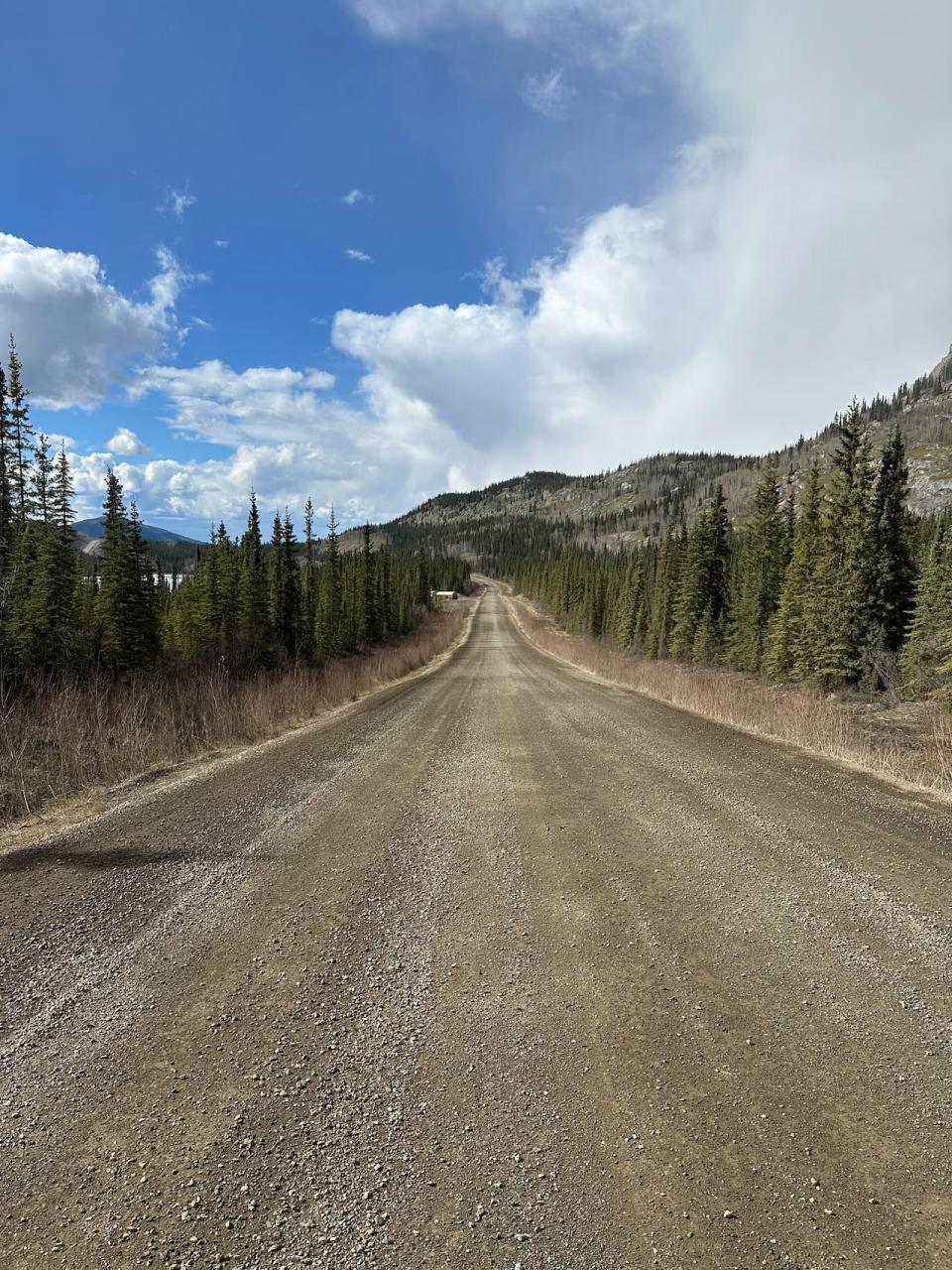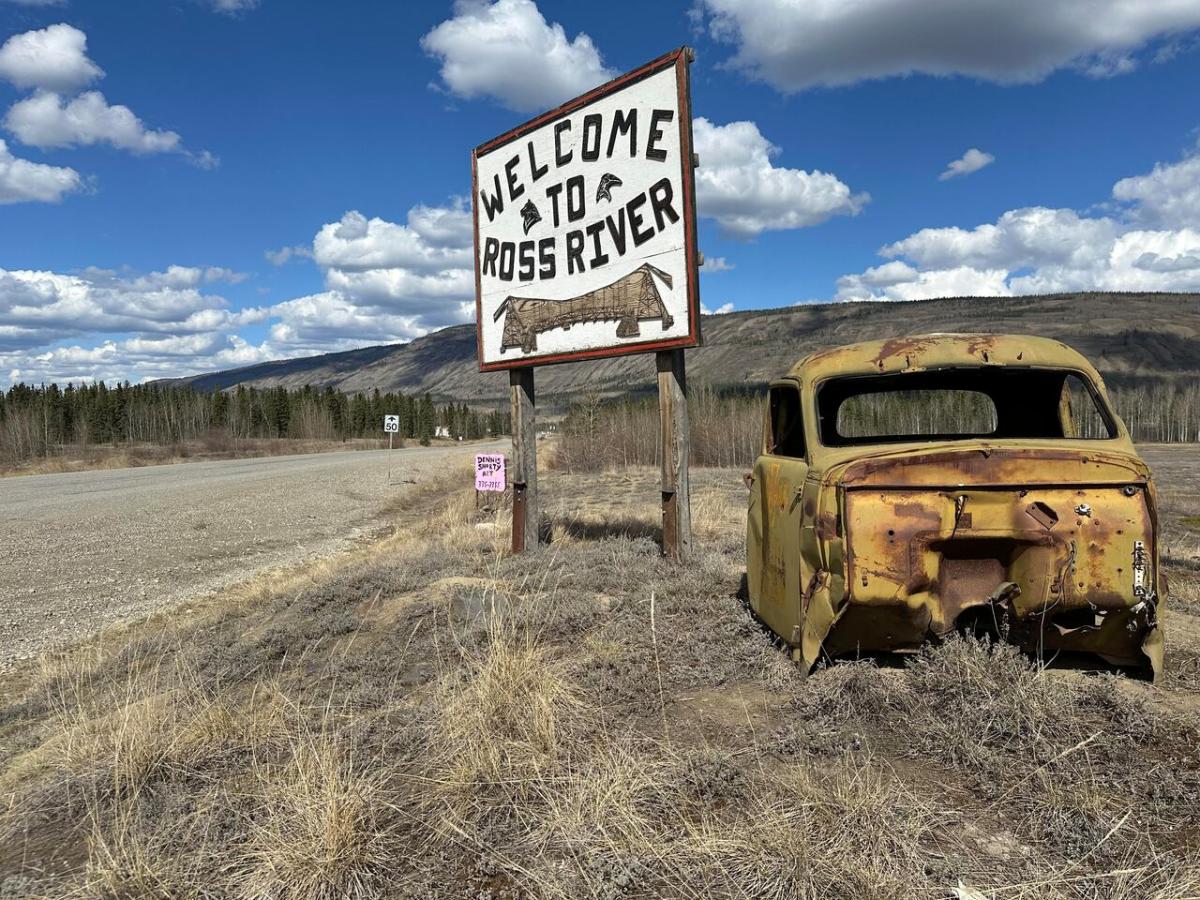WARNING: This story contains details of sexual abuse and discussion around suicide. It may affect those who have experienced sexual violence or know someone affected by it.
The Yukon government says it’s investigating sexual assault and misconduct allegations against one of its employees working in Ross River — years after the government first learned of the allegations.
The government told CBC an investigation was set to begin in July. In an emailed statement, it said an investigator would travel to Ross River in hopes of interviewing community members in person.
“The employee in question has been placed on leave and is not working in any community,” read the email.
The government declined Monday to provide an update on whether or not the investigation has started.
In a year-long dive into the allegations, CBC gathered hundreds of documents obtained through access to information requests from the Yukon government. CBC also interviewed more than 30 people living in Ross River — a community of about 400 people that lies 360 kilometres northeast of Whitehorse
Documents include a letter sent to the Yukon government on April 8, signed by Dorothy Smith, Roberta Dick and Verna Nukon — three of the five people who sit on the Ross River Dena Council — that alleges “rape, sexualized assaults and harm to our women.”
CBC has tried to reach out to the employee facing the allegations several times by email, registered mail as well as social media but has not received a response. CBC is not naming the employee because charges have not been laid and it isn’t clear if there is a criminal investigation into the allegations.
Government ignored allegations, Ross River Dena Council members say
The details of the allegations remain unclear as CBC has been unable to speak directly with any potential victims.
The letter sent by some members of the Ross River Dena Council refers to the use of a Yukon government truck, and talks about vulnerable women being dropped off on the highway. It calls the lack of attention given to this issue “insulting [and] borderline racist.”
“It has been reported to us by our community that women are being dropped off the highway with the Yukon government truck left to fend for themselves at risk of exposure and further harm. How is this any different from Saskatchewan’s ‘Starlight tours’ where Aboriginal people were dropped off to die?” the letter reads.
“We are horrified, we say clearly and definitively our women’s lives matter, our women’s lives deserve to be honoured and protected … Your government chose to protect your employee that has been harming our women.”
The letter also demands an investigation into the Yukon government’s conduct.
In an emailed statement sent to the Ross River Dena Council on June 5, Premier Ranj Pillai said he was only made aware of the letter on May 11 ‒ more than a month after it was sent.
“I take the allegations that you have raised very seriously,” Pillai said.
“Your letter was unfortunately not previously received at either my email address nor that of my ministerial advisor.”
A month later, the government said it was launching its HR investigation. It also said its executive council office and Aboriginal relations department will be reviewing how the government has responded to allegations about this employee over the years.
What’s behind the letter
The letter was sent this year, but the allegations are far from new.
Documents show government meetings, emails and internal investigations over the issue, dating to 2016. The Yukon government tasked someone from the Department of Justice specifically with collecting information from witnesses and potential victims in 2021, according to the documents.
In an email conversation sent in November 2021 between the investigator and a person in Ross River, whose name was redacted in the records, the investigator asks the person to pass along their contact information to any women who might have experienced inappropriate behaviour, so they could collect information from witnesses and victims about the “workplace allegations.”

The road leading to Ross River. (Virginie Ann / CBC)
The emails continue with the unnamed person questioning whether this might be the best approach toward potential victims.
“Whether women will come forward … it is not accurate to say if the women will come forward or not. Rather that they have never been provided with the support to do so such as: counselling services or any infrastructure that supports these women in a manner that is tangible, meaningful and or accessible. Nor is it accurate to say that these women are unwilling to come forward to make a report,” the unnamed person wrote.
Meanwhile, the RCMP says it can neither confirm nor deny the existence of records related to these allegations, or whether or not there was also a criminal investigation.
Everyone who spoke with CBC in Ross River described their concerns over alleged actions from the same individual working in the community and frequently interacting with vulnerable women.
Sources say they believe the employee was never removed from the community throughout the years, even though they repeatedly raised concerns over his alleged actions. When asked by CBC, the Yukon government declined to confirm or deny whether the employee was placed on leave or removed in previous years for investigation.
Documents that include Yukon government correspondence between several departments from 2018 to 2022 say there wasn’t enough evidence to prove the allegations.
However, after the letter from Ross River Dena Council members was recently sent, and following CBC’s coverage of the allegations, the government placed the employee on leave. There’s no good answer as to why it has taken so long to do so, according to Dorothy Smith, who signed the letter and sits on the Ross River Dena Council.
“It’s hopeless the way justice is … they’re not even listening to us,” Smith said.
Speaking more broadly about the community’s history, Smith told CBC she knows of many people who have been sexually assaulted in the past, some of whom have attempted or died by suicide.
Smith suggested that past trauma in the community makes it even harder for women to come forward in instances like this if they feel they aren’t being listened to.
“Where is there hope? There’s nothing, just no hope,” she said.
Roberta Dick, one of the three signatories of the letter, also recalls a long history of women being abused in the community, dating back to when the road connecting the village of Carmacks — almost 200 kilometres from Whitehorse — to Ross River was built in the 1960s and ’70s.
“It’s been like this forever … A lot of our people that are victims do use [substances] to escape from that trauma,” she said, referring to a federal report from 1993 about the community.
“People don’t become vulnerable overnight — it takes years of abuse,” Dick added.
The report Dick is referring to, called The Ross River Dena: a Yukon Aboriginal economy, speaks about women being used as sexual objects and how the isolation of Ross River contributes to that. It also talks about violence and sexual exploitation that were worsened by “white male labourers during the construction period.”
Dick said this kind of culture and attitude hasn’t changed.
“I don’t want my daughters to go through this,” she said.
“I wouldn’t want … anyone’s daughter or son to go through any of this kind of trauma … because it’s degrading. It takes your soul away.”
Both Dick and Smith spoke of that aspect of sexual assault: the victimization, guilt and shame that too often prevent victims from coming forward.
“They’re afraid to make it public because they’re ashamed,” Smith said.
Smith spoke of consent and how unclear — or even unknown — the concept can become in an environment where addiction is present and where vulnerable women are seeking and using substances.
The Canadian Women’s Foundation says sexual assault remains one of the most underreported crimes. The rate of sexual assault against Indigenous women is approximately three times higher than for non-Indigenous women.
Chief knew about allegations for years
Ross River Dena Council Chief Dylan Loblaw said he’s been aware of the allegations involving a Yukon government employee working in the community and vulnerable Indigenous women for almost six years.
Loblaw, however, hasn’t signed the letter denouncing the alleged sexual violence to women in the community. He said that’s because it was sent before he got around to it and that he’s trying to work with the Yukon government in a “meaningful way” instead.
He agrees the territorial government hasn’t been dealing with the allegations in the right way so far.
Loblaw says while the community has been feeling safer following the latest actions taken by the Yukon government 一 mostly over removing the employee from the community ー there are still some gaps needing to be filled.
“We haven’t been contacted and briefed on [the investigation] …. It could be triggering,” Loblaw said, adding that there needs to be better communication between the government and the community.
“There needs to be some accountability here because this has carried on too long … Things are being covered up and swept under the rug … We’re the forgotten people here.”
Support is available for anyone who has been sexually assaulted. You can access crisis lines and local support services through this Government of Canada website or the Ending Violence Association of Canada database. If you’re in immediate danger or fear for your safety or that of others around you, please call 911.
If you or someone you know is struggling, here’s where to get help:
This guide from the Centre for Addiction and Mental Health outlines how to talk about suicide with someone you’re worried about.

